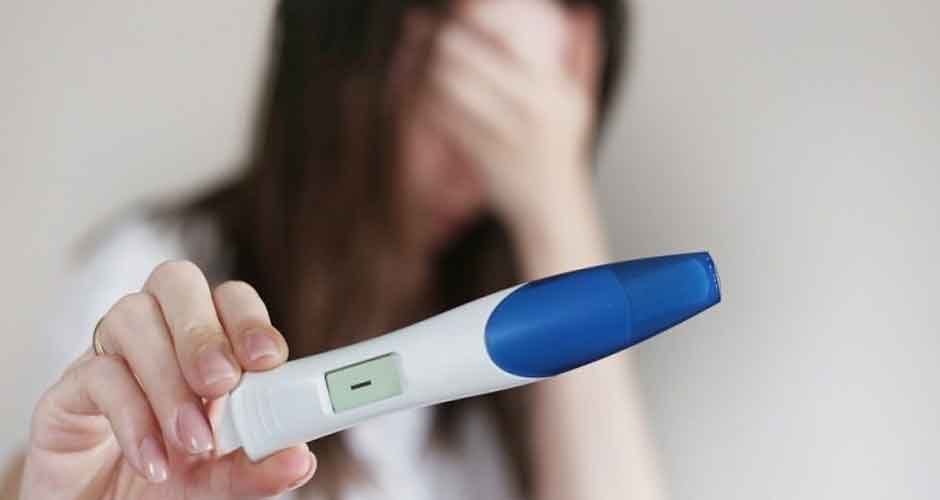Every 1 in 6 people is affected by infertility – a condition where a reproductive person is unable to conceive a child.
WHO describes this as “a major health challenge globally” in the 2023 report. The organization has also emphasized the need to raise awareness about supplements for infertility and other solutions.
So, while the rate of infertility issues is alarmingly high, it’s important to note that this condition is curable. All we must do is look out for the potential signs.
However, since most of these signs are hidden, most couples misunderstand them for something else. This delays the treatment and causes further complications.
To help you avoid this mistake, we have carefully compiled the 7 potential signs of fertility problems. Let’s dive in and discuss what exactly these are!
1. Irregular or Missed Periods
Regular periods (both in terms of date and flow) are an indicator of good reproductive health in women. It tells that ovulation is taking place. But you should be concerned when:
- Your periods come at different dates every month.
Teenagers often have irregular periods during their first few years of menstruation. But, once you’re 20+, the menstrual cycle should be between 21 to 35 days.
If you’re still getting periods at random times, it means the egg is not being released regularly. This can make conception difficult.
- Your periods are absent.
Missing periods is one thing and not having them is another. You shouldn’t take this lightly – especially if you’re nowhere near your menopause. It indicates no ovulation and infertility.
- Your periods are too heavy or too light.
The period flow varies from individual to individual. But, if you’re suddenly having too heavy or light periods, this means your reproductive system isn’t okay.
Too heavy bleeding can be a sign of polyps or fibroids. Meanwhile, too-light bleeding can be a sign of thin uterine linings (which aren’t suitable for fertilization).
2. Extreme Pelvic Pain
Having cramps and some pelvic pain is normal during periods. You may find yourself resting, sleeping, and using heating pads to ease the pain. But if your pain makes it impossible to carry out daily life activities, you need to consult a professional.
Extreme pelvic pain is a symptom of underlying issues, such as infection, ovary cyst, fibroid, and endometriosis. While all of these are curable, endometriosis is a life-long problem that can cause infertility.
In this condition, the uterus lining grows outside of it onto the surrounding structures. This causes unbearable pelvic pain during menstruation. Women are unable to do anything until the cramps stop and may even faint in the process.
Since most women misinterpret it for usual period pain or hormonal imbalance, the condition goes undiagnosed and can make it difficult to get pregnant later in life.
3. PCOS
Polycystic ovarian syndrome (PCOS) is another common issue in women. But, it’s more serious because it raises the risk of infertility by 70% to 80% – especially when a female doesn’t identify the symptoms and seek proper treatment early in life.
So, it’s very important to keep a lookout for PCOS symptoms like:
- Irregular or missed periods
- Excessive body hair
- Acne
- Weight gain
- Hair thinning
- Fatigue
If you have more than 2 of these symptoms with irregular/missed periods, get yourself checked by a professional. High testosterone levels and ovary cysts further confirm PCOS.
4. Repeated Miscarriages
Although infertility means not being able to conceive, repeated miscarriages can also signal reproductive issues in your body.
Please note that more than 30% of women miscarry a baby. But only 1% experience two or more consecutive miscarriages. So, if you’re repeatedly losing pregnancies, consult your healthcare provider for a thorough checkup.
5. Male Infertility
Women aren’t the only ones who experience infertility problems. According to the University of Utah Health, 15% of men have infertility in the US. Their case is more difficult to identify because they don’t have any apparent symptoms.
Low sperm count or sperm immobility can only be detected through sperm analysis. So, if you’re unable to get pregnant, it’s best to have your partner examined by the doctor.
6. Erectile Dysfunction
This is a common issue in men that can affect fertility. Most of the time, it is a situational condition triggered by anxiety and stress. But, if a man experiences it frequently, this indicates a lack of hormones or a serious underlying problem.
7. Age
The sperm and egg quality decreases with age. So, if you’re 35+ years old, the risk of infertility is high.
Women usually have a 10% to 15% chance of successful pregnancy at this age. And once they cross their 40th birthday, the chance drops down to 5%. Most women will not conceive in their mid-40s, even with IVF.
Comparatively, older men (35+) experience a 52% decline in fertility. This is linked to increased miscarriages, genetic and congenital disorders. It’s best to start a family early in life, and if you’re an older couple, consult a professional for possible solutions.






